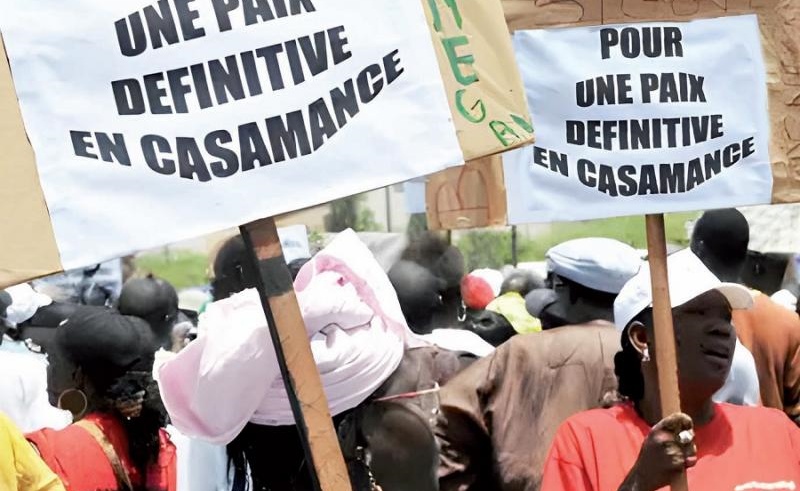Gambiaj.com – (ZIGUINCHOR, Senegal) – The suspension of American support of the peace programs in Casamance because of Donald Trump’s executive orders has sent shockwaves through the region, raising fears of destabilization in Senegal’s decades-long peace process. The unexpected decision by the U.S. government has left the former Casamance MFDC rebellion combatants, displaced populations, and local peace actors deeply worried about the state’s ability to fill the void left by U.S.-funded programs.
For years, American assistance—primarily through USAID—has supported the reintegration of former fighters, the resettlement of displaced communities, and infrastructure development in war-affected areas. With this withdrawal, stakeholders now fear a reversal of hard-won gains.
Ex-MFDC Combatants and Displaced Populations at Risk
Lamine Coly, coordinator of the Initiative for the Reunification of the MFDC Political Wings (IRAPA), voiced his alarm over the implications of the decision. “As a signatory to the peace agreements between the MFDC faction of Diakaye and the Senegalese government, I am deeply shaken. If USAID, which was supporting this process, is no longer there, it will lead to total chaos,” he warned.
Coly emphasized that displaced populations who had returned home with American aid now face an uncertain future. “If these people suddenly find themselves without help, without support, how will they manage? Will they be forced to beg again?” he asked.
Programs in Education and Civil Registration Affected
Among the key USAID-backed initiatives affected by the suspension is the “Alliwili 2 Extension” project, which focused on civil registration and peacebuilding efforts in Djignaky. Alphousseyni Diémé, mayor of the commune, described the setback as devastating.
“The USAID Alliwili 2 project played a critical role in consolidating peace here. It facilitated civil registration for ex-combatants and their families while helping revive economic activities that had been stalled by years of conflict,” he said. “With this abrupt halt, the backlog of 50,000 to 60,000 unresolved birth certificates remains in limbo. The education sector, which benefited from school infrastructure programs, will also suffer.”
Housing Crisis Looms for Returning Families
In addition to education and documentation setbacks, the withdrawal has placed over 300 returning families at risk. These families, who relied on an American NGO for housing support, now face an uncertain future, especially with the approaching rainy season.
Ousmane Sanding, mayor of Boutoupa Camaracha, one of the affected areas, painted a bleak picture of the consequences. “These displaced populations are building their homes in Banco, but with the rains coming, their houses could collapse if left unfinished. This could cause immense hardship,” he said, calling for urgent intervention.
Senegal’s “Diomaye Plan” as a Response
In an effort to address the crisis, the Senegalese government has been promoting the “Diomaye Plan for Casamance” (PDC), an ambitious initiative aimed at revitalizing the region. With a budget of 53.6 billion CFA francs, the plan focuses on infrastructure projects, access to drinking water, and reestablishing state services in areas abandoned due to past insecurity. The goal is to facilitate the return of nearly 6,000 displaced persons to 33 villages that remain largely deserted.
While the Diomaye Plan presents a national response to the withdrawal of American support, concerns remain over its ability to fully replace the targeted assistance previously provided by USAID and American NGOs. In particular, the lack of immediate solutions for civil registration and economic reintegration could hamper the long-term stability of the region.
A Cry for Renewed International Support
Amid growing uncertainty, peace advocates and local officials are calling for renewed international support to prevent backsliding in the Casamance peace process. “This withdrawal puts everything at risk,” warned Coly. “If the government and other partners do not step up, we may see rising tensions and instability once again.”
As Senegal navigates this critical moment, the fate of thousands of former combatants, displaced persons, and vulnerable communities hangs in the balance. The success of the Casamance peace process may now depend on whether the state and international partners can swiftly respond to the vacuum left by the American withdrawal.










